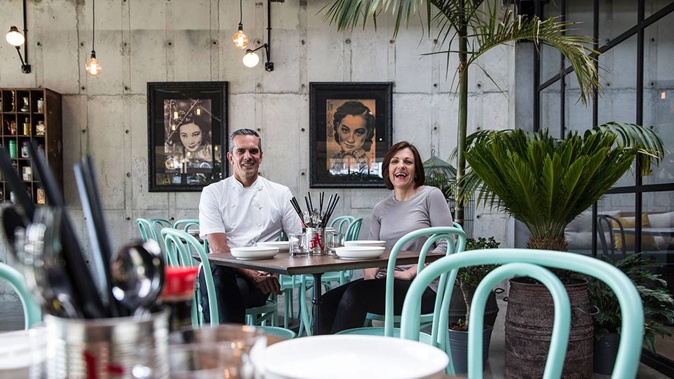
A co-founder of a restaurant chain in voluntary administration has spoken out about labour shortages the industry is facing.
“This is a real world problem. Immigration New Zealand is a shambles,” Go To Collection co-founder Fleur Caulton said.
Caulton said labour shortages in hospitality were extreme and “causing havoc”.
The restaurant chain released a public statement last week announcing its decision to go into voluntary administration.
“After a decade of success, Go To Collection, the owners of Rata, Madam Woo and Hawker & Roll restaurants, have taken the very difficult decision to place the business into voluntary administration.”
The statement reiterates Caulton’s concerns about immigration, saying Covid-19, labour shortages and “fraught visa application processes” had taken a significant toll on the business.
Caulton called the current state of immigration an embarrassment.
“They sent everyone home in 2020. Hospitality has always been made up of immigrants by 55 per cent pre-Covid.”
/cloudfront-ap-southeast-2.images.arcpublishing.com/nzme/JTMLLC6BDY65TY4SZS4DPE4PS4.png)
Fleur Caulton, chief executive of Go To Collection, the owner of Madam Woo. Photo / Supplied
- Hospitality NZ: Immigration reset means many businesses will never recover from Covid
- Hospitality NZ at a loss over comments from new Immigration Minister
- Madam Woo, Hawker & Roll placed in administration
She said migrant workers have lost their visas and now “people are having to jump through hoops” to obtain a work visa in the industry.
Immigration Minister Michael Wood said labour shortages were a persistent ongoing global symptom as the world recovers from the impacts of Covid-19.
“Covid brought the world to a standstill. While we can ensure the ability for those to come and work here, we acknowledge that people-to-people movement globally remains slow when compared to pre-Covid levels, and this is being particularly felt by the hospitality and tourism sectors, who traditionally rely on international workers,” Wood said.
“We are listening to the concerns of these sectors, and working with them to take practicable steps to unlock additional labour, as businesses work towards more productive and resilient ways of operating,” Wood said.
He said a steady return of key labour sources was under way, with over 18,000 working holiday visitors arriving in the country out of 37,000 approved since March.
Thousands more people were expected to arrive in the coming months, Wood said.
“In order to help these sectors to retain staff, we have extended the visas of working holiday-makers already in New Zealand with visas expiring between 26 August 2022 and 31 May 2023 by six months.”
He said the Government was also giving people who held a working holiday visa but didn’t travel due to Covid-19 a chance to come to New Zealand for the summer.
Immigration adviser Sukhpreet Kaur said the visa application process for migrant workers was very long, and was faster before the Government’s recent changes.
In October, Immigration Minister Michael Wood announced visa exemptions for highly-skilled overseas workers.
At the time, he said he was listening closely to the concerns of businesses, and the changes were supposed to relieve labour shortages and attract talent to New Zealand.
But Kaur said Aotearoa was simply not an attractive market for these workers.
“The Government is forgetting that the economy and hospitality is tourism-based - it’s running on small businesses and people who actually do the groundwork.”
She said a focus on high-skilled workers in IT and senior management was not realistic because “New Zealand is not lucrative for those people”.
Kaur added: “The Government says they are going to shift immigration to highly-skilled workers. It’s not about what they want, but what is happening.”
Immigration NZ’s current process requires employers to cover costs for an overseas worker’s job check and accreditation, on top of paying workers a median wage of $27.76, Kaur said, and many small businesses here were bearing the burden of these costs.
Kaur said pay for migrant workers “should be based on market rate, not the median wage”.
Wood has said they are providing media wage exemptions for “specified tourism”.
“The Government needs to get in touch with reality,” Kaur said.
“Immigration NZ should not squeeze small businesses for money in order to be profitable.”
Wood said: “There will always be some cases that are unique or have circumstances which mean they take longer, but Immigration New Zealand are committed to helping make the immigration process as easy as possible for customers while also ensuring key immigration requirements are met.”
Go To Collection is working with PricewaterhouseCoopers to manage its voluntary administration.
Take your Radio, Podcasts and Music with you








